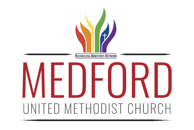
6 Isn’t this the fast I choose:
releasing wicked restraints, untying the ropes of a yoke,
setting free the mistreated,
and breaking every yoke?
7 Isn’t it sharing your bread with the hungry
and bringing the homeless poor into your house,
covering the naked when you see them,
and not hiding from your own family?
8 Then your light will break out like the dawn,
and you will be healed quickly.
Your own righteousness will walk before you,
and the Lord’s glory will be your rear guard.
9 Then you will call, and the Lord will answer;
you will cry for help, and God will say, “I’m here.”
If you remove the yoke from among you,
the finger-pointing, the wicked speech;
10 if you open your heart to the hungry,
and provide abundantly for those who are afflicted,
your light will shine in the darkness,
and your gloom will be like the noon.
11 The Lord will guide you continually
and provide for you, even in parched places.
He will rescue your bones.
You will be like a watered garden,
like a spring of water that won’t run dry.
12 They will rebuild ancient ruins on your account;
the foundations of generations past you will restore.
You will be called Mender of Broken Walls,
Restorer of Livable Streets.
Reflection
Yesterday’s devotional spoke about the importance of fasting while keeping connection to the divine through prayer – pray first. Today we hear about the second task of the fast, which is much harder. Isaiah 58 also reminds us that we do not choose fasting just to be in solidarity with other Christians, with God or even to those who are oppressed. The fast we choose must also break the “chains of injustice and untie the cords of the yoke, to set the oppressed free and break every yoke.”
So what is a yoke? It is a hand-carved wooden beam that fits over a pair of oxen or other animals, as a guide, so that the animals walk in tandem. But here, the “yoke” that Isaiah presents, ties those who are oppressed to their misguided oppressors. In this metaphor, the yoke is the burden of the hurting and the downtrodden that they are carrying. Worse is that, for however someone is oppressed, often there is someone else who is benefitting. The words of the prophet Isaiah call us to the task of the fast–to break the chains of injustice, setting the oppressed free.
The task of the fast is to challenge oppression until change happens! The Church must choose to be the force of change in the world, and not just during Lent. Isaiah reminds us that satisfying the needs of those who are hurting is not merely enough. Instead, we must choose to be the force of change in the world, today and always. What else is the mission of the church if not to challenge injustice and oppression in all of its forms?
By Barbara Carlson
For Pondering & Prayer
Isaiah 58 is a timeless reminder about the responsibility of all of God’s people. Imagine it. What if we could end any injustice and oppression of some kind, or of every kind? What is the type of injustice or oppression that God calls your heart to challenge? How do you see God as calling you to this challenge during Lent? How do you see God calling our church to this challenge? Consider offering your thoughts: [email protected].
Prayer: Holy One, we are grateful for the chance to fast in your holy name. During this season of Lent, thank you for the spiritual disciplines that bring us closer to you. Thank you for the strength to face our challenges today and always. Help is to see hope in these difficult days and to use such hope to inspire others. When we sense you are calling us, we ask for the courage to speak up on behalf of the oppressed. We ask for your continued blessing, as our church continues to challenge injustice and to support those in need, during Lent and always. Amen.









Comments are closed.